FAYETTEVILLE, Ark. – Students and volunteers gathered on a chilly Sunday morning on the shore of a large pond that was showing the effects of prolonged drought conditions to take part in FISH – Fish In need of Shore Habitat, an art project with practical implications..
Students enrolled in Ecological Emergencies in the U.S., a dynamic art history class that encourages students to make a difference in the community, chose to partner with Ozark Alternatives in Fayetteville to help to restore the ailing ecosystem of the drought-stricken pond.
"I try to take art history from dark classrooms with students watching PowerPoint slide presentations to include more social involvement and cooperative brainstorming," said Alissa Walls, assistant professor of art history in the J. William Fulbright College of Arts and Sciences. "The students have to study the history of great artists and ecological projects in order to embark on one of their own."
As a pond dries up, smaller fish can no longer find places to hide from predators, which changes the pond's food chain and ecosystem. Visiting eco-artist David Brooks met with the class to show how the construction of bamboo cages would provide safe hiding places for the smaller fish, working at stabilizing the pond's ecosystem.
Under Walls' direction, the class conceptualized a jetty made from a fallen tree, using it to anchor the bamboo cages and providing a meditative space.
"It was interesting to me to watch the group take an idea and make it their own using creative problem solving, teamwork, and good old sweat," said Roy Emerson with Ozark Alternatives. "Everyone who worked on this project should have a real world working knowledge of pond ecology and how the food chain works."
During construction, the students ran into design problems and had to redesign the habitat on the fly.
"One of my favorite things about this project is that everyone worked so hard on something that will mostly benefit fish," said Emerson. "This is a noble thing that should make them very proud."
For more information on the F.I.S.H. project, go to Cassie Conley's course blog.
Topics
Contacts
Cat Donnelly, administrative assistant, department of art
J. William Fulbright College of Arts and Sciences
479-575-6362,
Darinda Sharp, director of external affairs and alumni outreach
School of Journalism and Strategic Media
479-595-2563,
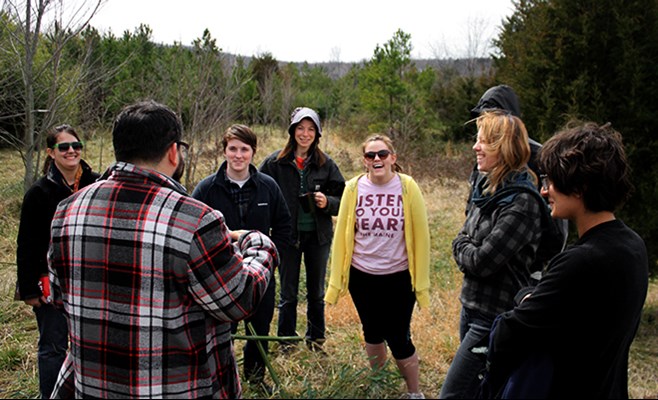
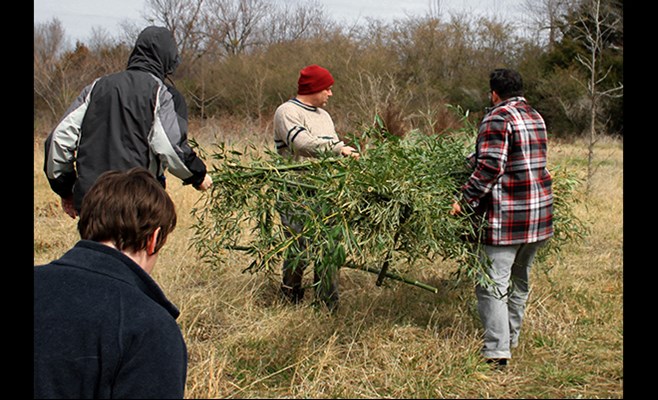
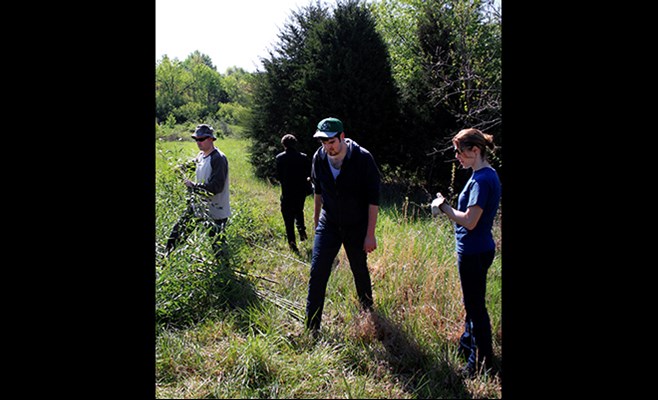
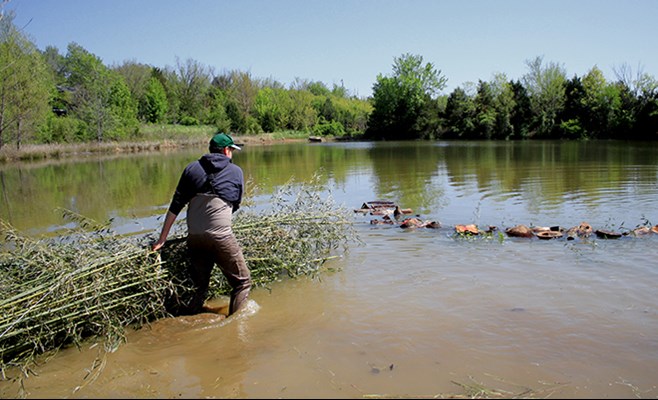
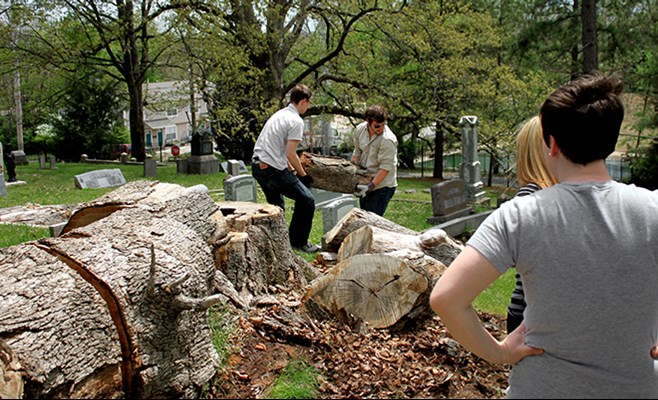
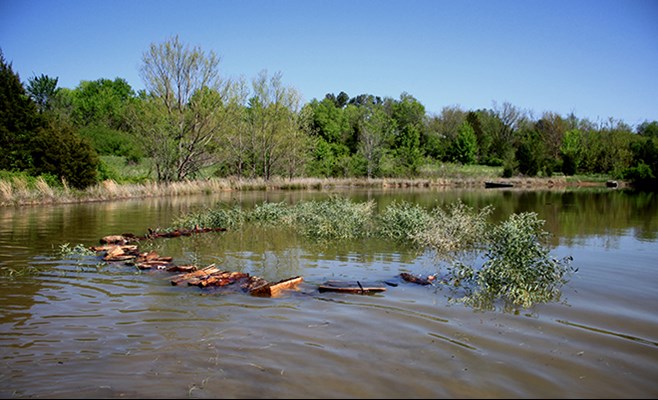
.jpg)